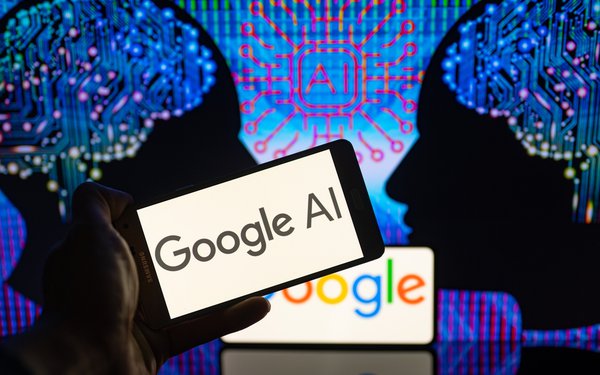
How can advertisers accurately monitor the incremental
impact of media spend and activity on campaign performance if search does not drive traffic?
Some advertisers, but not all, have identified that less online referral traffic is being driven
from Google Search since the adoption of artificial intelligence (AI).
Some believe the flow from search to their websites will only worsen in the coming year.
Ads will become more
important to augment earned media for driving traffic because of AI, and voice inputs like the one integrated into Google Lens allow users of the app to tap the camera icon in the Search bar to open
Lens audibly for search.
Advertisers and marketers need to adapt -- no disrespect intended.
"We have been seeing AI Overviews eat into the organic search traffic volume," said
Udayan Bose, CEO at NetElixir. "As AI Overviews gets extended across queries, the SEO traffic continues to drop. I estimate a 30% reduction in SEO traffic for informational queries and 12% to 15% for
transactional queries."
advertisement
advertisement
To compensate for the drop in traffic and associated revenue, marketers will move more investments to paid ads, he said. The move toward AI powered
hyper-personalized experiences presents an opportunity for Google to also reimagine Ads--format and number of ad units and quality and personalization.
He also believes Google will
aggressively try to get marketers to embrace Performance Max by simplifying the entire ad launching process that involved AI-powered creative development and execution to AI-agent powered account
structuring recommendations.
"Overall, search as we have known it for the past 20 years will look very different around this time next year," he said.
Driving online
traffic from search to websites has been one of the media’s leading benefits. It's no longer working as well for many small companies.
"I've got to the point where at almost any given
time there are 0 users from Google on my site," Morgan McBride, owner of many businesses and websites including CharlestonCrafted, wrote on X. "It’s so incredibly the inverse of what
it was a year ago it’s hard to comprehend."
She wrote that it is a problem when a site gets more views from DuckDuckGo than Google.
Someone on X asked, if there is little
to no organic search distribution, what the risk of creating ultra-premium custom content behind a paywall would be?
“In my very specific personal case, we still make a living off of
display ads without Google traffic,” she wrote.
An article was published on OpenAI's unique opportunity with its toll-free call-in ChatGPT service to generate revenue and drive online
and foot traffic to publishers, retailers, and businesses. And I think the company is missing a huge opportunity. (I wrote about it here.)
A sponsored post from IPG Mediabrands' Kinesso delves into the topic of driving traffic and
performance, adding that Search Lift tool from Meta focused on measurement can impact ad campaigns by tracking increases in product and brand searches after exposing the viewer to an ad.
What
stood for me was not the tool, but combining earned with paid media -- something advertisers always said was required to boost performance. With AI, perhaps now it is required more than ever
before.
I'm pretty sure that AI and automation are partially responsible for this change.
Someone suggested switching to social videos that get straight to the heart of the
topic, but McBride said that at least for her business, short-form videos do not work well.
Christian Radny, an SEO expert and digital creator in Germany, uses video. When he searched
for solutions to household problems, for example -- a topic McBride focuses on -- only ecommerce pages on Wikipedia appeared. This suggests McBride’s site does not index well as Google moves
forward with AI and automation.